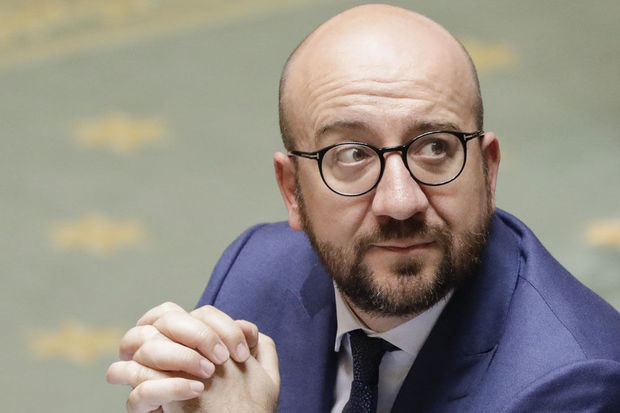Reversal: Belgium “regrets” helping get Saudi Arabia on U.N. women’s panel

The human rights group UN Watch, which exposed the U.N.’s election of Saudi Arabia to its women’s rights commission, welcomed Belgian Prime Minister Charles Michel’s statement of « regret » for helping elect the Wahhabist monarchy to the world body tasked with « empowering women » and « promoting gender equality. »
« Human rights activists everywhere ought to accept this rare apology, » said Hillel Neuer, executive director of UN Watch, « provided, however, that it is matched with a real commitment to ending the U.N.’s routine elevation of gross human rights abusers to influential human rights bodies, which only empowers the regimes, not the victims. »
« Saudi Arabia may have a large part of the world’s oil wealth, » said Neuer, « but their contempt for the basic rights of women should never be legitimized by U.N. bodies or by liberal democracies such as Belgium. »
Belgium’s disclosure of how it voted is likely to increase pressure on other countries to do the same, as it refutes diplomats’ claims that such information is obliged to be hidden from the public.
« Because we know there were at least four other EU nations who voted for Saudi Arabia, today we call on France, Sweden, Norway, and the UK, who are among the other members of the 54-nation U.N. Economic and Social Council. to likewise assume responsibility and express regret if indeed they backed Riyadh. »
Election of Saudi Arabia Was Black Day for Human Rights
“Electing Saudi Arabia to protect women’s rights is like making an arsonist into the town fire chief,” said Neuer earlier this week. “It’s absurd — and morally reprehensible.”
“This was a black day for women’s rights, and for all human rights,” said Neuer. Interview: Why Saudis Joined Women’s Rights Body
“Saudi discrimination against women is gross and systematic in law and in practice. Every Saudi woman,” said Neuer, “must have a male guardian who makes all critical decisions on her behalf, controlling a woman’s life from her birth until death. Saudi Arabia bans women from driving cars. Why did the U.N. choose the world’s leading oppressor of women to promote gender equality and the empowerment of women?”
[STORY GOES VIRAL, REPORTED WORLDWIDE]
Saudi women feel betrayed by the UN. “I wish I could find the words to express how I feel right know. I’m ‘saudi’ and this feels like betrayal,” tweeted a self-described Saudi woman pursuing a doctorate in international human rights law in Australia.
“The UN sent a message that women’s rights can be sold out for petro-dollars and politics,” said Neuer, “and it let down millions of female victims worldwide who look to the world body for protection.”
‘I regret the vote’
Michel told parliament on Thursday that last week’s vote came unexpectedly and that a diplomat was forced into a hasty decision without proper consultations with the government in Brussels.
« If we could redo it, the government would have advocated that there is no support (for Saudi Arabia), there is no ambiguity about that. I gave instructions so that in the future the political assessment of this type of file takes place at the highest level, » he said.
Saudi Arabia was backed by 47 of 54 nations.
« I regret the vote, » Michel said.
UN Watch called Saudi Arabia « the world’s most misogynistic regime. »
Firestorm in Belgium: Opposition Demands Answers from Foreign Minister
The environmentalist and socialist opposition, as well as the Workers Party (PTB), appealed to the President of the Parliamentary Chamber, Siegfried Bracke, on Thursday evening, over the responsibility of Foreign Minister Didier Reynders in the vote of support for Saudi Arabia for UN Commission on the Status of Women (CSW)
The opposition demanded that Minister Reynders come to explain himself on Thursday evening in plenary session. It believes that the statements made by him on Wednesday in the Committee on Foreign Affairs, the communication sent by his office late Thursday afternoon, and the explanation of Prime Minister Charles Michel at question time did not indicate that the foreign minister was properly aware of the Belgian position at the time of the UN vote.
While Reynders had not said it literally, on Wednesday he defended the seat of the Salafist country when he stated that “within the UN, everything must be debatable and dialogue must be possible with everyone.” He said that Belgium’s vote was “decided at the diplomatic level.”.












